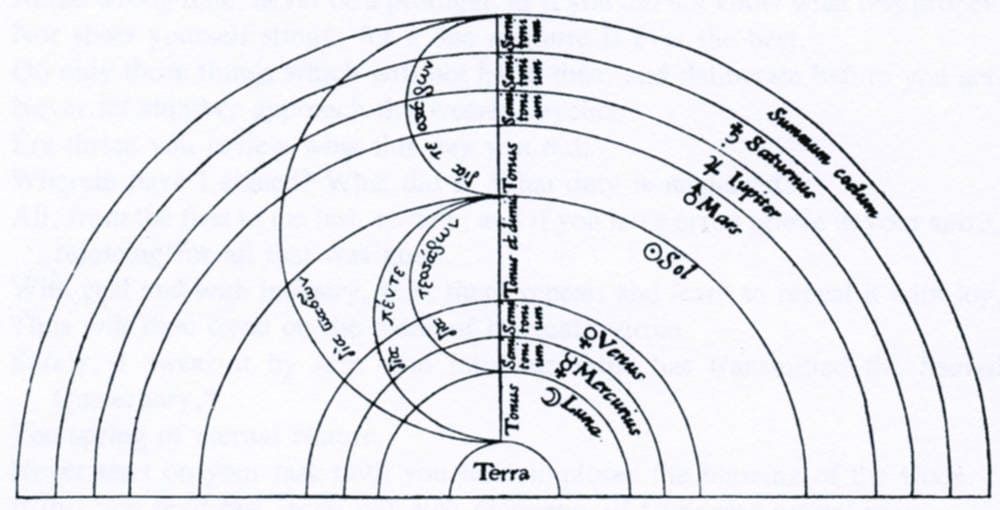Pythagoras had a theory of music?
On planet Earth in 500BC the first non-religious, scientific society was formed by Pythagoras

We as human beings cannot help but think. We exist because we think and have an unexplained stream of consciousness that puts us into existence. It is not true to say that without our ability to think intelligently we would not exist; we would simply be unable to explain, or attempt to explain it. So, our cognitive existence is deeply intertwined with our physical existence on planet Earth. Coincidence… possibly, but do we live our lives hoping for coincidence or do we set out at the beginning of each day to develop, open our minds and learn about the beauty that so humbly surrounds us in its quiet, harmonious way.
Many of us nobly dedicate our lives to the sciences and what is real about the world we all occupy, in a quest for some kind of truth, just as Pythagoras did, creating possibly the world’s first un-priestly cooperative scientific society approximately 500BC. This is a non-coincidental parallel between the human world thousands of years ago and the human world we all live in now. So what was it that triggered this search in Pythagorean times and what is it that keeps us searching? Perhaps even more importantly why? Is it consciousness itself that creates this perpetual hunt for reason and rhyme, or have we become too complex for our own good and the solutions arise in the simplest of the world’s beauties. All we need do now is take a step back from the supply and demand of the economics that we have created or the political rights and wrongs that we live by, seeing as they clearly don’t define the type of life I’m getting at.
If we look at the world in a physical way: there is material, energy. This is made up of fundamental particles that have their own individual properties, and these particles working together make up everything in the material world, fact. There are also immaterial phenomena such as waves. Waves and material are just as important as each other when considering the functionality of our Universe. Waves play their part everywhere and can manifest strongly in some arts; musical waves for example. This type of energy appears to be far too easily overlooked in the importance of life, and the harmony of man within it.
If I was to say, I listened to a song the other day, and this song completely transformed the rhythm that day had previously been beating. This song adjusted my gloomy, pessimistic, frankly dissonant day into a pleasant affair. It was something that emitted hope and encouragement along with immediate satisfaction of sounding beautifully concordant and euphorically cathartic. It is well known that a song has the power to do such a thing; be it because of nostalgia, hormones or chemistry, what we know is that the chemicals that caused this physical change within my body were not present in the sound waves prior to my hearing them. My senses and body acted as some sort of canvas for the raw vibrations to unleash what power they hold.
Considering the above, it all comes down to a vibration. The study of a vibration will reveal harmonics. Harmonics are musically pleasing to the ear, a perfect equilibrium that is clearly audible. The word ‘harmony’ is frequently used as a co-existing, perfectly balanced state of existence between two or more parties, just like a string. Harmony is a state, and many philosophers believe that a harmonious state is a prerequisite for beauty. Something can only be truly beautiful if it is in a state of perfect harmony. This can be looked upon from the point of view of Earth; the world with all its life is beautiful, and it is harmonious. The higher the degree of beauty, the more harmonious it is in nature. This would explain that beauty is just the material manifestation of the nature of harmony.
Indeed there are some ancient philosophies that attempt to explain harmonic motions of the planets in our solar system, by observing physical harmonies in planetary motion, the ratios between maximum and minimum angular speeds, and separations between planets. All of these celestial bodies sing, and there are times when more than one sing in harmony. Even more rare are the times when huge quantities sing in perfect concord. I wish not to bring The Divine into this, however, perfect harmony is a measurable phenomena. The complete harmony of our Universe may have only ever occurred once in existence. One point in time when all that is, was perfectly balanced, perfectly harmonious and beauty was at the point of Creation.
Is it that there is a perfect harmony present on Earth that sustains life? Or is the perfect separation (diapason) between the Earth, the Sun and the Stars a cognitive coincidence? The law of octaves is just as important in the periodic table, discovered by Newland, as it is in the composition of a piece of music. Whichever way we look at the world, the beauty of harmony in music exists. It is this purity of the physical world that brings music and science together, undeniably, in its unique chorus of vibrations around us.








